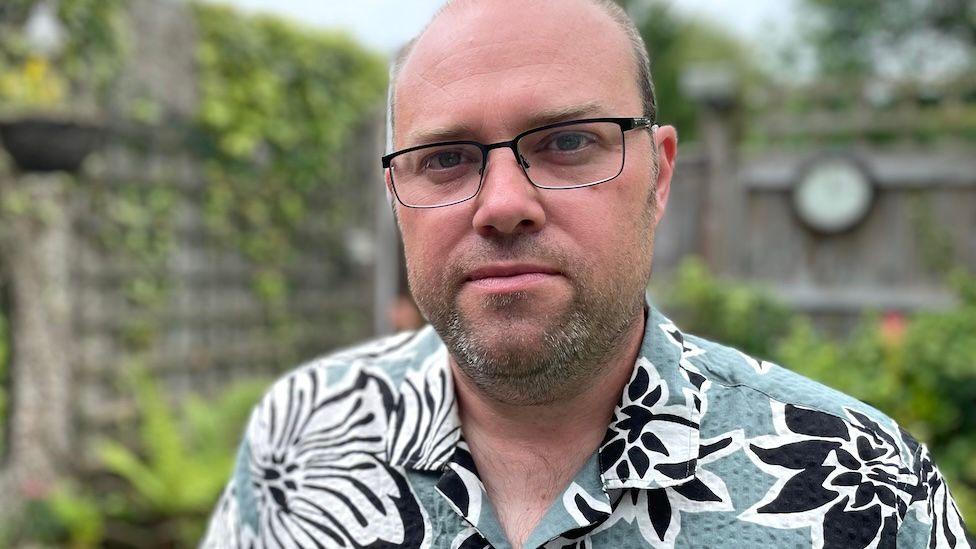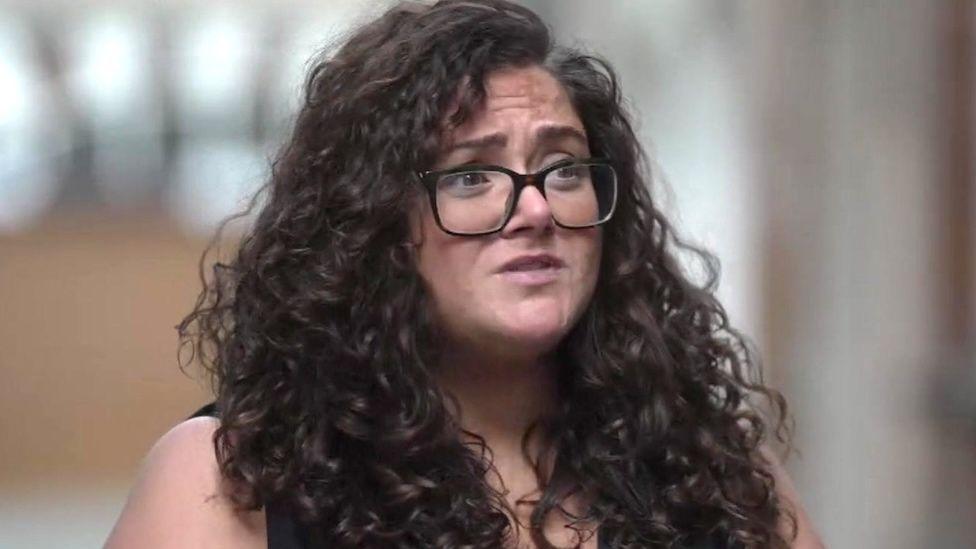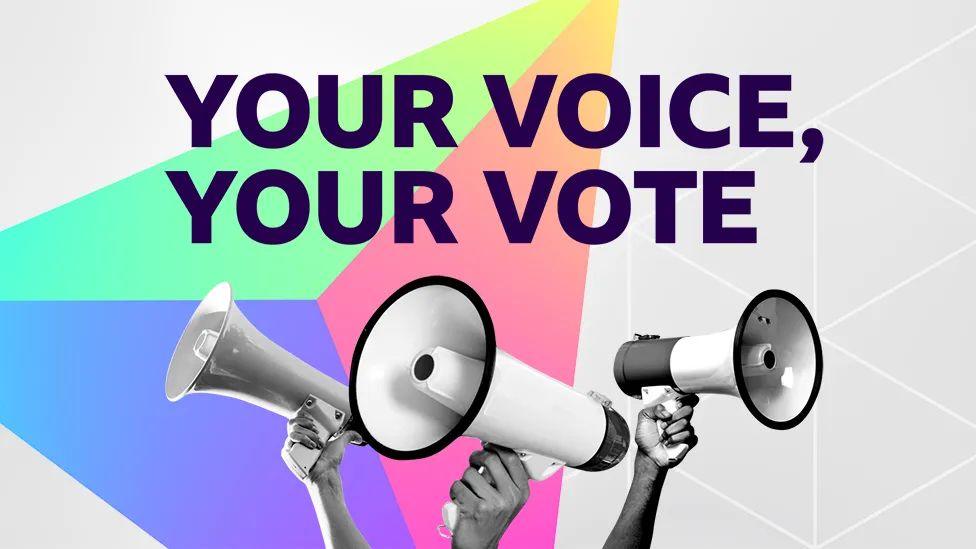Your Voice, Your Vote: More help needed for mental health

Simon's family locked him in their home to stop him hurting himself
- Published
After trying to take his own life last year, Simon wants politicians to prioritise investment in mental health so that more people can get the help they need.
This article contains references to suicidal thoughts.
“I just felt like I'd let everybody down, that I'd failed, that I wasn't good enough, that I would be better off not here any more.”
Father-of-two Simon is determined to speak openly and honestly about what happened to him - even if it is extremely difficult.
The 46-year-old works for a food and drink manufacturer and lives in Harrogate, North Yorkshire, with his wife and teenage daughter.
In November last year, Simon was diagnosed with depression and tried to take his own life.
He is among the many people who got in touch with the BBC via Your Voice, Your Vote to tell us that mental health is the most important issue for them during this election.
'Things just came to a head'
Last year, Simon's mental health was suffering due to pressures at work and home. He was on the waiting list for an autism assessment - which still has not happened.
“I tried to avoid just getting up in the morning. It just felt like I couldn't face the day. I just didn't want to do anything,” Simon reveals.
He lost two stones in weight and didn’t sleep for “weeks and weeks and weeks”.
“One night, things just came to a head and if it wasn't for my wife and daughter, I could have done something quite serious,” he says.
“They locked me in the house thankfully, and I ended up going to hospital to A&E.”
But a week later, Simon left his home and tried to take his own life.
Ministers seek to overhaul disability benefits system
- Published29 April 2024
Silent Men film asks why so many still struggle to open up
- Published18 November 2024
He was helped by his local mental health crisis team and ended up being off work for nine weeks to recover.
Simon says even though he’s “not there yet” in his recovery, that overall he is doing “fantastically well”.
But he believes he would have benefited from earlier in-person intervention.
“If I had the face-to-face support before, then I probably wouldn't have had the issues that I had in November,” he says.
“I think some of the services are good, however, I just don't think there are enough of them.”
Simon now wants to see greater investment in mental health services and for the parties to prioritise mental health this election.
“It's breaking people's families. It's breaking people's lives unnecessarily. It almost broke mine, and that is not OK,” he says.
Recent polling from the charity Mind, external suggests nearly half of people (49%) think mental health support through the NHS is difficult to access.
Of those who responded, nearly two-thirds (66%) were concerned about the state of mental health services provided by the NHS.
'Seen as a sign of weakness'
A National Audit Office report, external found that there were an estimated 1.2 million people on the waiting list for community-based NHS mental health services at the end of June 2022.
Rosie Weatherley, spokesperson for Mind, says it’s “very, very urgent that whoever comes into the next government prioritises mental health”.
Simon believes that his struggles were made worse because he is a man.
He says there is often a sense among men that they “need to man up, grow up".
"It's something that people don't want to talk about because they see it as a sign of weakness,” he says.
Suicide is the biggest killer of men, external under the age of 50 and three-quarters of suicides registered in 2022 - the most recent year where data is available - were males.

Rosie Weatherley from Mind says reform of the Mental Health Act is long overdue
Simon is now part of Andy’s Man Club, a men's suicide prevention charity. He says it’s “helped massively” to talk to other men who have gone through similar experiences. He now volunteers with the charity too.
“Nobody should take their own life because that's a permanent decision that you can't take back,” he says.
“Feeling depressed is a temporary thing, but taking your own life is a permanent one."
What are the parties promising on mental health and male suicide?
The Conservatives say their suicide prevention strategy will ensure employers in largely male industries have appropriate support in place for employees, such as mental health first aiders, and they will expand mental health programmes, including NHS Talking Therapies, over the next parliament.
Labour says it will recruit 8,500 mental health professionals to cut mental health waiting lists, provide mental health support in every school, and open walk-in hubs in “every community so young men and boys are not left to suffer alone”.
The Liberal Democrats are calling for the introduction of regular mental health check-ups. They also say they will put a qualified mental health professional in every school.
The Green Party says it will ensure that everyone who needs it can access evidence-based mental health therapies within 28 days. It says it will also provide a trained and paid counsellor in every primary and secondary school, and every sixth-form college.
Plaid Cymru says it supports reform of the Mental Health Act. It says reform is “well overdue”. It also says that alongside the transfer of full powers over.
The BBC approached the Scottish National Party and Reform UK, but they did not respond.
In its manifesto, the SNP called for the next UK government to boost NHS spending by £10bn a year, with £1.6bn of that coming to Scotland, while Reform pledged an extra £17bn a year for the NHS.
If you have been affected by the issues in this story, help and support is available via BBC Action Line.


Get in touch
Your Voice, Your Vote: What do you want BBC News to cover this election?